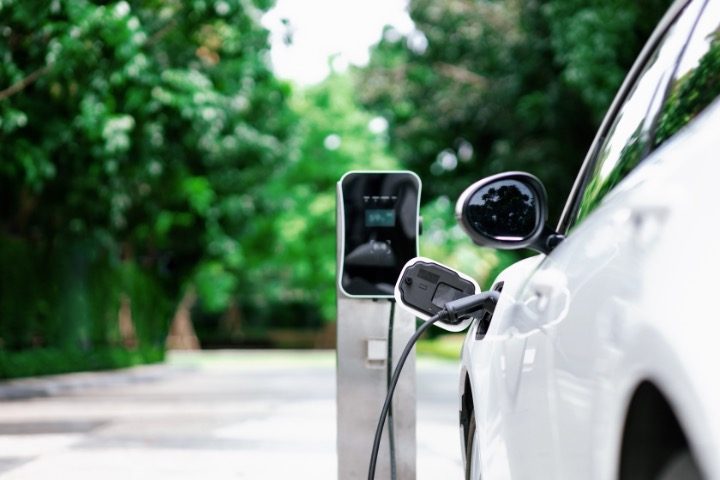
Isn’t it ironic that those who want us to ditch reliable sources of electricity generation are the same ones who want to roughly double our reliance on electricity by transitioning to electric vehicles?
Not only that, but the EV industry is cornered by one of our top enemies — China — with its communist forced labor and surveillance-state tactics.
In fact, despite the old saying “never say never,” it seems that you cannot find one good thing to say about EVs. Now, thanks to the Texas Public Policy Foundation (TPPF), there is yet another reason to dislike them.
TPPF just released a new study exposing “how regulatory credits, hidden costs and subsidies disguise the real cost of electric vehicles.”
The report is entitled Overcharged Expectations: Unmasking the True Costs of Electric Vehicles, and it says that the average consumer should expect to spend the equivalent of $17.33 per gallon for fuel if one were to substitute a gasoline-powered automobile for an EV. This calculation takes into account full costs — including charging equipment, maintenance, hidden taxes, and government subsidies — averaged over 10 years and 120,000 miles.
It’s an approach that Brent Bennett and Jason Isaac of TPPF say has not been used before — factoring in the full life cycle cost of EVs. Despite that, in their executive summary, they point out that consumers have already caught on to the pitfalls of EVs, with companies like Ford losing more than $70,000 on each of the money pits it currently sells. That prompted their commentary that:
It is not an overstatement to say that the federal government is subsidizing EVs to a greater degree than even wind and solar electricity generation and embarking on an unprecedented endeavor to remake the entire American auto industry.
That reality caused the Cornwall Alliance to ask, “Will the Electric Car Mandates Battle Decide the 2024 Election?”
In that article, Duggan Flanakin brought up other critical — even dangerous — points about EVs that major media are ignoring, noting that, “In Pakistan, lightning hits a warehouse full of electric vehicles and batteries, causing a fire and explosions that killed a 15-year-old boy and injured 163 others.”
He goes on: “Five electric vehicles were destroyed at Sydney’s airport when a detached EV battery from a luxury vehicle burst into flames.”
Then he notes: “Taxpayer-subsidized Proterra’s bankruptcy has left the entire eight-vehicle Jackson (Wyoming) bus fleet grounded for months. Parts are not available. Naturally, Jackson’s bureaucrats plan to buy more electric buses. Greenie points!”
Meanwhile, other countries are catching on to the EV boondoggle. Flanakin points out that “British Prime Minister Rishi Sunak announced a five-year delay on banning new gasoline- and diesel-powered vehicles (until 2035), citing ‘unacceptable costs’ on ordinary people.”
He also points out the cold reality of insurance premiums, writing: “British auto insurer John Lewis Financial Services has ‘temporarily’ paused issuing policies on battery-powered vehicles until its underwriter analyses risks and costs (and raises rates).”
“Another insurer, Aviva, reportedly is refusing to insure Teslas, while other EV owners saw premiums go up 1,000 percent in just one year.”
Those insurance rates, coupled with the cost of EV repairs, have made the expensive automobiles almost exclusively a luxury product.
And despite the tentative end of the United Auto Workers strike, The Wall Street Journal recently predicted that Biden’s planned transition to EV production will cost some 117,000 auto jobs, quoting UAW research director Jennifer Kelly, who pointed out that current engine and transmission manufacturing positions will be eliminated if EVs displace cars powered by internal combustion engines.
Of course, that doesn’t count the massive job losses in the petrochemical industry that are part of Biden’s green plans.
Then again, perhaps his motive is actually the same as that of Klaus Schwab, whose World Economic Forum (WEF) published a white paper earlier this year calling for a drastic reduction in private car use by 2050. Pundits agree that, if achieved, the WEF goal would cut car ownership across the globe by 75 percent.




